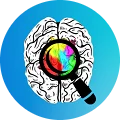Neural Conduction : Generation and Transmission of Action Potential
Introduction to Neural Conduction Neurons, the fundamental units of the nervous system, are specialized cells responsible for neural conduction i.e transmitting information throughout the body. Their primary function is to
